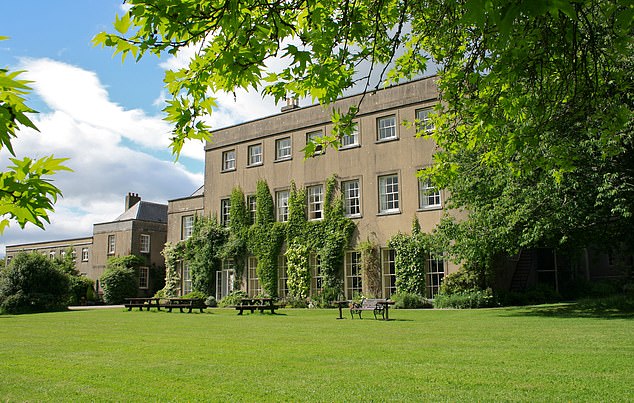Can I stop talking for four days and find inner peace? No phones, no reading, no writing and, of course, no alcohol: those are the strict rules of this Buddhist retreat at Gaia House in South Devon.
A friend had recommended that I arrive on time to avoid being assigned bathroom cleaning duties as part of “work meditation” (an hour a day of housework or gardening). Without realizing it, I arrived 24 hours early, but I happily took the gardening job.
I am also lucky enough to have a single room with a bed and a sink. The alternative is a five-bed female dormitory or a shared double room (room, not bed) and I prefer to eat my toes.
Founded in 1983, the retreat is housed in a former nunnery in a beautiful rural setting. There’s a meditation room with a Buddha and a Burmese gong, and a feeling of love everywhere. A sign in the living room even requests that moths be disposed of without killing them – after all, we’re here to follow Buddha’s five precepts, including that of non-harming.
Once the retreat begins, we wake up at 6.15am for a group shower, sitting meditation at 6.45am, and breakfast at 7.30am. We queue up for lunch: delicious plant-based food made from whole grains, legumes, and homemade salads, and “tea” (soup and bread) at 5.30am.
In harmony: Caroline Phillips visits Gaia House (pictured), a Buddhist retreat in South Devon
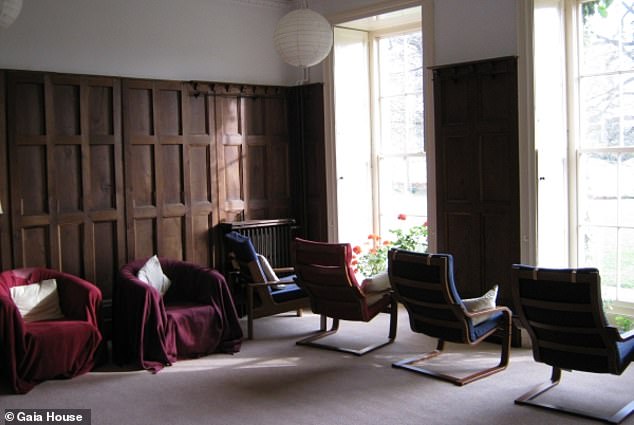
Founded in 1983, Gaia House is located in a former nunnery “in a beautiful rural landscape,” explains Caroline. Upstairs, the living room
There are five supervised reflection/meditation sessions daily, a working meditation, and an evening Dharma (Buddhist teaching) talk on topics such as the “inner critic.”
Most of the 47 participants sit on the floor with their feet tucked up, but I cautiously opt for a chair. Our teachers, Alan Lewis and Laura Bridgman, a former British Buddhist monk and nun, guide the sessions with compassion.
My 28-year marriage has fallen apart, and instead of running away from my pain, I want to feel comfortable in my own skin, connecting with silence, stillness, and my spinning mind.
The sitting meditations are interspersed with outdoor meditations where everyone walks as if they were moonwalking. I stay in the divine walled garden and finally sit under a branch of a wild apple tree topped with Tibetan prayer flags.
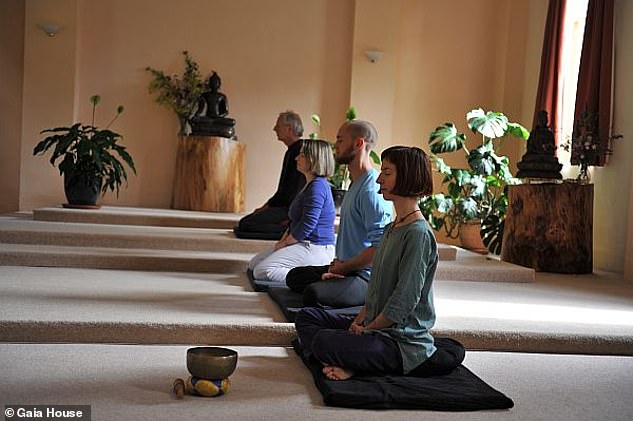
At the retreat, guests take part in a sitting meditation every day at 6:45am, Caroline reveals. She says: “There is a meditation room with a Buddha and a Burmese gong, and a sense of love everywhere.”
I achieve a state of concentrated calm for about a nanosecond.
I fall asleep during meditation (waking up snoring), take a quick nap between sessions, and sleep soundly at night.
When I’m awake, my mind goes crazy, but it’s also a relief to leave the familiar world of words behind. And I love the meditation of work, even if my trimmed hedge looks like it’s been attacked by a drunken chainsaw.
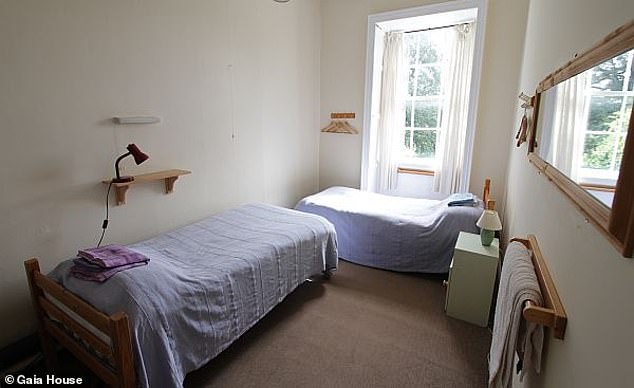
Caroline sleeps in a single room, but others sleep in shared double rooms (pictured) or in a five-bed dormitory.
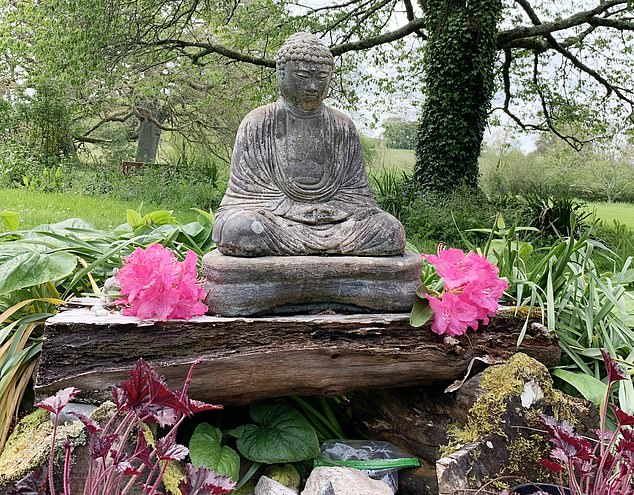
A statue of Buddha in the garden of the retreat. “We are here to follow the five precepts of Buddha, including the one of not doing harm,” says Caroline
The teachers do not receive any salary. In the end, instead of offering them the traditional betel leaves or rice alms, I swipe my credit card and donate 150 pounds of “dana”, which in Sanskrit means “a gift from the heart”.
I feel calmer, more aware of the emotions in my mind, heart and stomach. I have learned that observing what is happening in my body is meditation. I have loved my wise, humble and blessed teachers, and I have learned some spiritual tips, self-observation and compassion.
Now, a good chat.

